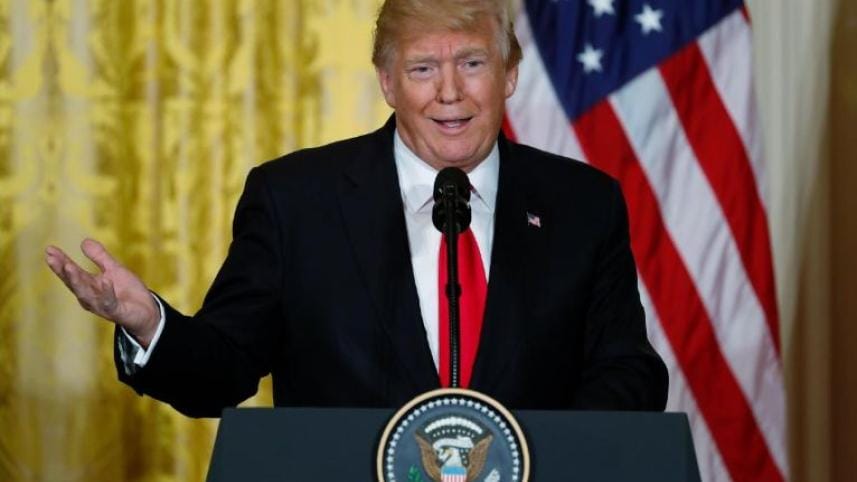Trump 'to extend' Iran sanctions relief

US President Donald Trump will extend sanctions relief granted to Iran under its 2015 nuclear deal with the United States and other world powers, leaving the accord intact for now, according to a person familiar with the decision.
However, Trump, who has vowed to scrap the pact, was expected to give the US Congress and European allies a deadline for improving it, the person said. Without improvements, Trump would renew his threat to withdraw from the agreement.
Trump had faced a Friday deadline to decide on whether to waive the sanctions. A decision to withhold a waiver would have effectively ended the deal that limits Iran’s nuclear program. The White House is expected to announce the decision on Friday.
While Trump approved a sanctions waiver, he also decided to impose new, targeted sanctions on Iran, the person said.
Two senior Trump administration officials told Reuters on Wednesday that the president, a Republican, had privately expressed reluctance to heed the advice of top advisers recommending he not reimpose the suspended sanctions.
Trump has argued that his predecessor, President Barack Obama, a Democrat, negotiated a bad deal for the United States in agreeing to the nuclear accord.
Hailed by Obama as key to stopping Iran from building a nuclear bomb, the deal lifted economic sanctions in exchange for Tehran limiting its nuclear ambitions. It was also signed by China, France, Russia, Britain, Germany and the European Union.
Trump had come under heavy pressure from European allies to issue the sanctions waiver.
DIFFERING VIEWS
Iran says its nuclear program is only for peaceful purposes. It has said it will stick to the accord as long as the other signatories respect it, but will “shred” the deal if Washington pulls out.
The US Congress requires the president to decide periodically whether to certify Iran’s compliance with the deal and issue a waiver to allow US sanctions to remain suspended.
Trump in October chose not to certify compliance and warned he might ultimately terminate the accord. He accused Iran of “not living up to the spirit” of the agreement even though the International Atomic Energy Agency says Tehran is complying.
Hardliners on Iran in the US Congress have called for the reimposition of the suspended sanctions and an end to the nuclear deal, while some liberal Democrats want to pass legislation that would make it harder for Trump to pull Washington out without congressional consent.
Trump and his top advisers have been negotiating with US lawmakers on Capitol Hill to try to change sanctions legislation so that he does not face a deadline on whether to recertify Iranian compliance with the nuclear deal every 90 days.
Senate Foreign Relations Committee Chairman Bob Corker has been working on amending a US law to include “trigger points” that if crossed by Iran would automatically bring back US sanctions.


 For all latest news, follow The Daily Star's Google News channel.
For all latest news, follow The Daily Star's Google News channel.
Comments